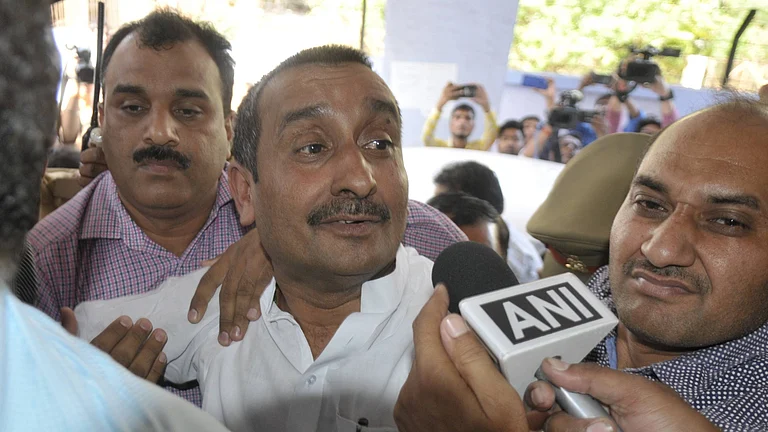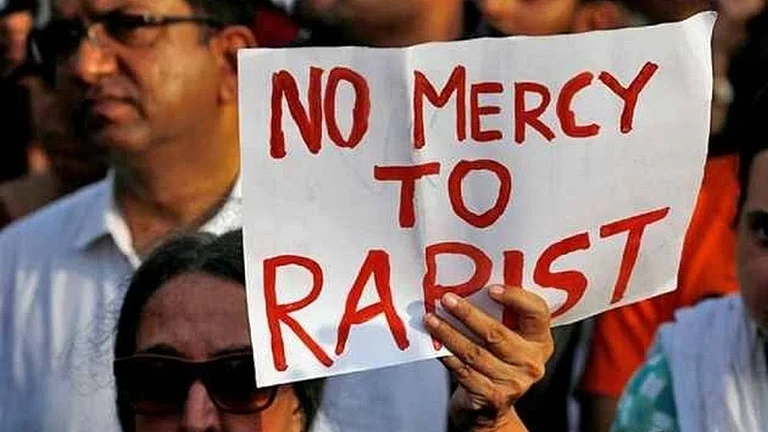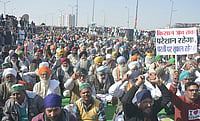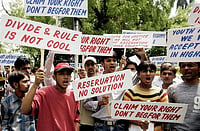Ten years ago, a 23-year-old woman physiotherapist boarded a bus in South Delhi with her friend. There were six persons on the bus, one of whom was later identified as a minor.
The woman was assaulted and gangraped on the bus. She and her friend, who was also assaulted, were thrown off the bus on the roadside to die. They were, however, spotted, and Delhi Police was informed. As details of the woman’s injuries trickled to the world at large through media reporting, people were outraged at how someone could go to the lengths the rapists did — inserting a rod, damaging her intestines, and repeatedly raping her.
The outrage spilt over onto the streets of Delhi and the Gen Z and even several millennials had their first taste of mass urban protests. They were seeking punishment to the rapists, accountability from the state that’s mandated to safeguard people, and they were seeking answers.
In the 10 years since the gang rape of the 23-year-old woman physiotherapist, called Nirbhaya as the law does not allow her real name to be reported, India has amended criminal laws, and investigation procedures, and has even amended how juveniles —legal term for minors— are prosecuted. But have these measures deterred crimes against women?
How sexual crime laws changed after Nirbhaya case?
The calls for justice were loud in days after the Nirbhaya gang rape. There were demands to hang the rapists. When it was reported that the most violent of her rapists was the minor boy, there was outrage over the fact that he would be out in just three years as minors cannot be tried or sentenced as adults.
In 2013, the Criminal Law (Amendment) Act made several changes into Indian rape and sexual crime laws and investigative procedures, the principal among them being the broadened definition of rape and severe punishment for it.
Section 375 of the Indian Penal Code (IPC) was amended to broaden the definition of rape from penile penetration to penetration by other means as well, such as orally or by hands or any other foreign object.
“A man is said to commit ‘rape’ if he inserts, to any extent, any object or a part of the body, not being the penis, into the vagina, the urethra or anus of a woman or makes her to do so with him or any other person; or manipulates any part of the body of a woman so as to cause penetration…[or] applies his mouth to the vagina, anus, urethra of a woman or makes her to do so with him or any other person,” says the amended section.
The age of consent was also set at 18 years.
Section 376 was also amended to increase the punishment for rape. Under the amended section, rape was made punishable by a minimum of seven years imprisonment — later further amended to 10 years, rape causing death or vegetative state was made punishable by minimum 20 years.
Some of the other major amendments to IPC are listed below:
Section 166 (A) was inserted, which punishes a police officer for disobeying lawful instructions and not doing their mandated duty as per the law with imprisonment of 6-24 months.
Section 166 (B) was inserted, which punishes denial of treatment to a victim at a hospital and not informing the police of an alleged offence with imprisonment for one year or fine or both.
Sections 326 (A) and (B) were introduced to deal with acid attacks and attempts of acid attacks, punishable by imprisonment for not less than 10 years extendable to life imprisonment with compensation and imprisonment for not less than five years extendable to seven years respectively.
Section 354 (A) was inserted which punished sexual harassment through unwelcome physical contact, request or demand involving pornography with imprisonment extendable to three years and sexual harassment through sexual comments with imprisonment up to one year.
Section 354 (C) made voyeurism punishable by a minimum of one year. It means to watch or take a photo or video of a woman in a private act without her consent.
Section 354 (D) made stalking punishable with three years of imprisonment for the first conviction and five years of conviction for the second conviction.
The Juvenile Justice Act amendment
Though the Juvenile Justice Act, which deals with minors accused and convicted of crimes, was not amended in the immediate aftermath of the 2012 Delhi gang rape, it was amended and it’s understood that the amendment was forced by the public outrage over the Nirbhaya case.
One of the rapists in the Nirbhaya case, often said to be the most brutal of all, was a minor. While the others were sentenced to death and were eventually executed, the minor was only sent to a reform centre for three and was set free in 2015.
Following the outrage, the Juvenile Justice Act —often called JJ Act— was amended to enable the trial of accused aged 16-18 years as an adult if accused of “heinous crimes”. The decision to try the accused as an adult is taken by the Juvenile Justice Board (JJB), as per the JJ Act.
The amended JJ Act says, “In case of a heinous offence alleged to have been committed by a child, who has completed or is above the age of sixteen years, the Board [JJB] shall conduct a preliminary assessment with regard to his mental and physical capacity to commit such offence, ability to understand the consequences of the offence and the circumstances in which he allegedly committed the offence.”
Even though the juvenile is tried and convicted as an adult, he is not sentenced as an adult, said Advocate Rishi Malhotra to Outlook in an earlier story.
“Even when a juvenile aged 16-18 is convicted as an adult for a heinous offence, the juvenile is not sentenced in a manner similar to an adult. For the same offence, an adult could be sentenced to death or life, but a juvenile even when being tried and convicted as an adult is not sentenced to life imprisonment or death. A punishment short of these two punishments is handed to them,” said Malhotra, who specialises in criminal law.
Effectiveness of laws, unaddressed questions
Following the shock and outrage over the 2012 Delhi gang rape, the then-Congress-led Union government formed a three-member panel led by Justice JS Verma, a former Chief Justice of the Supreme Court. It was known as the Justice Verma Committee.
While some recommendations of the Verma panel made it to the amendments, some did not and some resultant amendments went against the recommendations.
While the amendments dropped the recommendation to penalise marital rape, the amendments introduced death penalty which was not recommended by the panel. Though the definition of rape was liberalised, it still remained —and remains to this day— women-centric. Only a man can rape a woman, according to Article 375 of IPC, which leaves little room for justice for men and homosexual and transgender persons experiencing penetrative sexual assaults.
Moreover, the age of consent was not changed to 16 as Verma panel had recommended.
Feminist thinkers told Outlook that the amendments were more populist, less reformist.
“These were basically populist measures, such as enabling the prosecution of juveniles in some cases adults, that Verma Committee and most feminist groups said harmed the cause,” said feminist activist and author Kavita Krishnan.
Citing the high-profile cases against journalist Tarun Tejpal and filmmaker Mahmood Farooqui, Krishnan told Outlook that judicial interpretation at times does not favour women complainants despite strong evidence.
She said, “The evidence was strong in the trial court. The high court repeated it’s good evidence and the witness is credible, but it added that it was a feeble ‘no’. If it’s an educated woman, her ‘no’ may have been too feeble [as per the court], and so this guy could have thought that her ‘no’ meant ‘yes’.
“The fact that the Supreme Court rejected the challenge to the judgement, refused to entertain it at all, was, I think, a major blow to the law itself because if you let the law be interpreted in these terms where there is no ground whatsoever to interpret the consent in this way.”
The amendments that followed the Nirbhaya case were reactionary and fulfilled the “collective conscience” of people who were demanding death penalty to the rapists out of outrage, says Bibha Tripathi, Professor, Faculty of Law, Banaras Hindu University (BHU).
Despite all the legal amendments, crimes against women are still widespread. Tripathi tells Outlook that the law and society need to evolve hand-in-hand and any imbalance between the two would leave issues unaddressed.
“There is the issue of improper enforcement of laws but there is also the issue of society that continues to be governed by patriarchal notions. It’s not just legal but it’s also societal. Neither the law nor society can solve the issues on its own. The death penalty for rapists only remedied the national and international backlash at the time, but it did not deter crimes against women over the years,” says Tripathi, who specialises in feminist criminology.
Besides the death penalty, Tripathi also addresses the issue of the age of consent. The Verma panel recommended it to be set at 16 but the amendments set it at 18.
Tripathi says, “Everyone is aware today that it’s very natural for sexual relations to be made under the age of 18. Such sex remains criminalised. There needs to be a study to assess the maturity of under-18s, say 14- to 18-year-olds, to see if they are mature enough to understand the concept of consent.” He further adds that there is also a need to have a National Crime Victimization Survey And Report, so that victim is helped even then the accused remain unidentified or Unapprehended.
(with inputs from Shreya Basak)


























